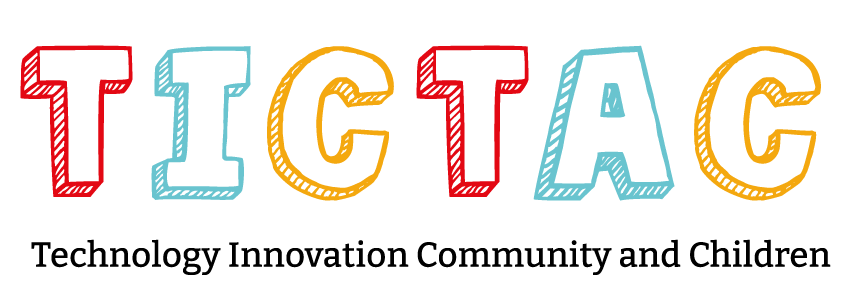CARE-Kids |
BEST |
CRAFT
|
REPLICATE |
Spring-a-Story Lancashire |
EUGAIN |
XR-KIDS
|

TICTAC Technology, Innovation, Community and Children
TICTAC Technology, Innovation, Community and Children

TICTAC Technology, Innovation, Community and Children
TICTAC Technology, Innovation, Community and Children